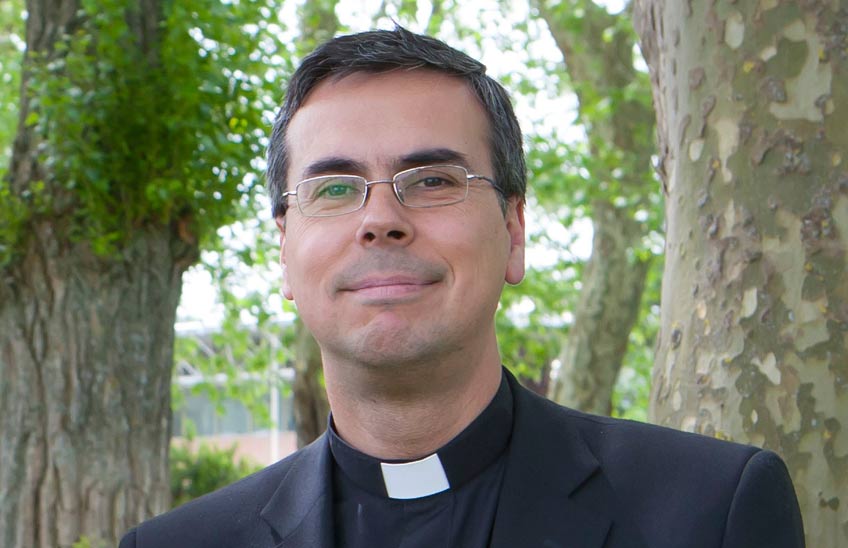"Not all holes in knowledge can be filled with scientific content."
Javier Sánchez Cañizares coordinates in the Institute for Culture and Society of the University of Navarra the I congress of the Spanish section of the Society of Catholic Scientists.

FotoManuel Castells<br>/Javier Sánchez Cañizares, investigador del Instituto Cultura y Sociedad de la Universidad de Navarra y coordinador del congreso.
14 | 09 | 2022
"Scientific activity is one of the jewels in the exciting adventure of the human knowledge . But not all the holes that remain to be filled in it can be covered with scientific content". This was stated by Javier Sánchez Cañizares, researcher of the University of Navarra, on the occasion of the I congress of the Spanish section of the Society of Catholic Scientists, which is being held in the Institute for Culture and Society (ICS) from September 15 to 17.
Professor Sánchez Cañizares mentioned that thinkers such as Pasteur or Kelvin "used to say that the more one knows about science, the closer one gets to God". At the same time, he cited opposite examples, such as the case of Steven Weinberg, award Nobel Prize in Physics, "who said that the more we know about the universe, the less sense we see in it". In his opinion, the solution is to bet on "the correct relationship between science and other forms of human knowledge ".
"The apparent obstacles can serve as an opportunity for the scientific knowledge to purify naive religious representations or, vice versa, for faith to unmask scientific reductionism," he said. From agreement with him, faith can remind us that, "beyond the technological advances that it can provide, science has from its birth the vocation to always seek the truth".
The researcher of the group 'Mind-Brain' of the ICS and of the group 'Science, Reason and Faith' (CRYF) has added that current science presents an increasingly complex nature and with numerous novelties at different levels, so that "it is becoming less and less compatible with the mechanicism and determinism that feed nihilistic visions".
Artificial intelligence and transhumanism, some of the program's themes
"What one would expect from a God staff is that he wouldcreate a universe where there is room for many modes of creativity and autonomy, where the past serves as a basis for the future without completely determining it," he has insisted.
Javier Sánchez Cañizares has coordinated at the ICS the I congress of the Spanish section of the Society of Catholic Scientists, of which he is a member. Other speakers will include Stephen Barr, president of the Society; Enrique Solano, director of the Spanish Virtual Observatory of the Astrobiology Center (INTA-CSIC); Max Bonilla, director International of high school Razón Abierta; and Catherine L'Ecuyer, researcher, popularizer and author of books and articles on Education.
The program will address, among other topics, issues such as the contribution of contemporary physics to a religious worldview, the communication of science and the pedagogy of faith, the present and future of artificial intelligence, transhumanism and human freedom from the neurosciences.
